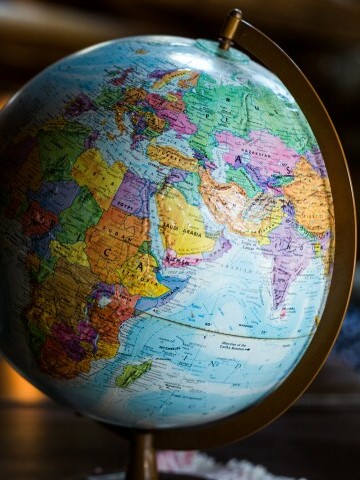
Bloggar
Bridging Ideas and Nature: A researcher’s insight into the Nordland Research Institute
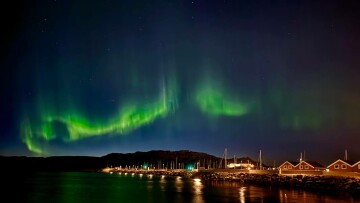
Aurora over the Bødo marina. Picture: Ruslan Gunko
I believe many of you readers have experienced a moment when you find an intriguing research paper, check the affiliation, and then delve further to discover what those researchers are actually doing. Sometimes, you might be pleasantly surprised because you've potentially found a place where you’d like to belong, at least virtually or collaboratively. The Nordland Research Institute was such a discovery for me in the past. Needless to say, I immediately thought: how about collaborating with the researchers there? The first step, of course, was to establish contact. To my delight, this happened quickly, and I received an invitation for a research visit to the Nordland Research Institute in April 2024.
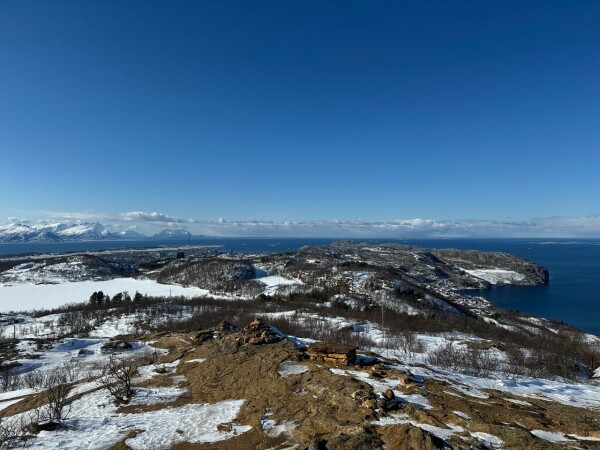 View from one the top hills in Bødo. Picture: Ruslan Gunko
View from one the top hills in Bødo. Picture: Ruslan Gunko
Let me introduce the institution first. The Nordland Research Institute is a social science research institute with a broad range of research interests centered around sustainable transformations and development, well-being, and local communities. Moreover, the institution has extensive experience in shaping interdisciplinary projects on both a Nordic and international scale. It has three campuses located in Bodø, Mo i Rana, and Lofoten (Svolvær). It sounds like a perfect place, doesn’t it? I had no doubts and immersed myself in the institution’s routine for two weeks.
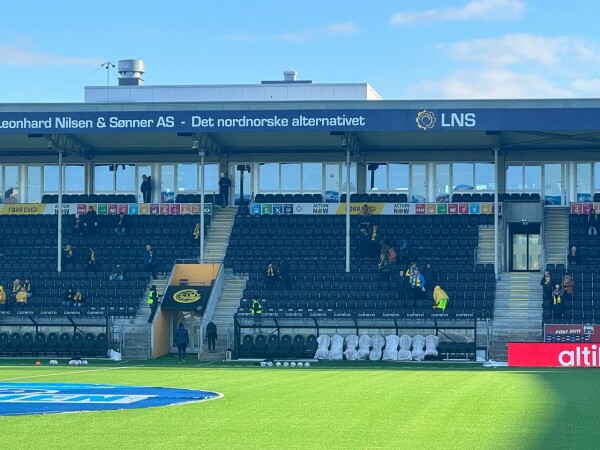 The advertisement of SDGs on Bødo/Glimt stadium. Picture: Ruslan Gunko
The advertisement of SDGs on Bødo/Glimt stadium. Picture: Ruslan Gunko
First, I had the privilege of spending one week in the Bodø office. This is where the headquarters of the research institute is located, and thus, most researchers have their base in this city. It was a perfect chance for me to present my work and ideas and connect with potential collaborators. I found the strong research focus on local communities particularly intriguing. It convinced me that we share similar research ideas about the significance of the bottom-up effect in sustainable development. Additionally, I gained a new perspective on fossil fuel extraction related to extractivism in the Arctic and worldwide, and its contribution to unsustainable development. The week concluded with a visit to a match of the local football club Bodø/Glimt against Viking from Stavanger. I was pleasantly surprised to see that the club-fan ties in Bodø were being used to deliver messages about the Sustainable Development Goals (SDGs) and sustainability. In my opinion, this is a perfect way to use a local sports club to communicate with residents about sustainable development.
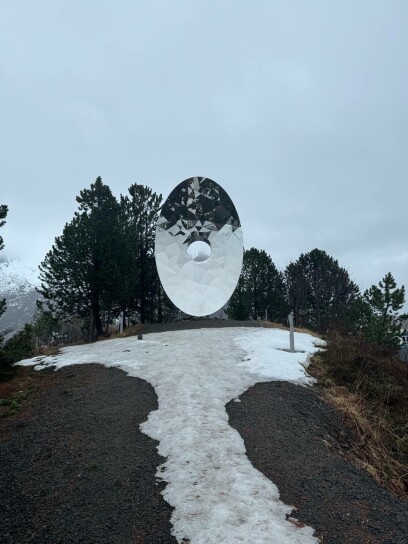 The Eye of the North. The fascinating permanent installation on a hill in Svolvær. Picture: Ruslan Gunko.
The Eye of the North. The fascinating permanent installation on a hill in Svolvær. Picture: Ruslan Gunko.
The second week of my research visit in Northern Norway involved meeting researchers and experiencing the work environment in the beautiful Lofoten. Working surrounded by such stunning nature was an entirely different experience. Discussions with my colleagues from the Lofoten office about the role of nature for people were particularly engaging. It was fascinating to see how locals are combining new sources of income from regular tourist cruises with traditional activities like fishing and drying fish on racks. This made me ponder whether our views on sustainability in small coastal communities align with practical realities given the dependencies that have developed.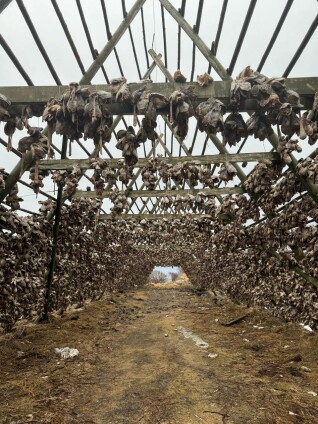
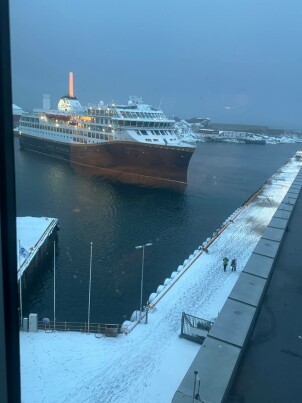
The rack with drying fish heads and the view of my window, where one of a few tourists cruises per day parking. Picture: Ruslan Gunko
Overall, the research visit to the Nordland Research Institute was a fantastic experience filled with exciting discussions, which I hope will result in fruitful collaboration. It was interesting to explore new perspectives on environmental issues, the well-being of coastal communities, and sustainability. With much of its income derived from fossil fuels, Norway's attempt to integrate sustainable practices provides valuable insights into the complexity of the changes needed. I am confident that the role of nature in the well-being of people plays a significant part in this process. Regardless of the sources of income, it was clear to me that it is hard to find anyone as connected to nature as Norwegians (and we Finns, of course).
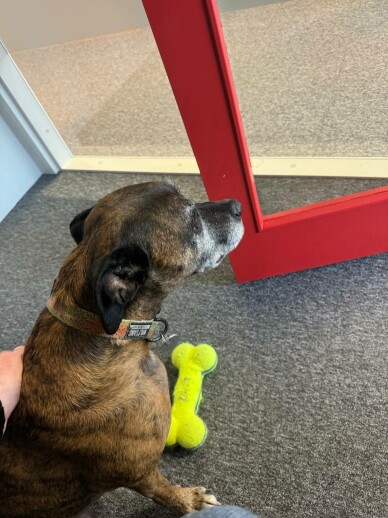 One of my colleagues in the Svolvær office. Always curious as researcher should be. Picture: Ruslan Gunko
One of my colleagues in the Svolvær office. Always curious as researcher should be. Picture: Ruslan Gunko
The blogpost has been reviewed by Novia's editorial board and accepted for publication on 14.6.2024.
![]()
Bioekonomi
Blogginlägg som är granskat av Novias redaktionsråd är utmärkta med nyckelordet "Granskat inlägg".
Vi följer CC-BY 4.0 om inget annat nämns.
Ansvarsfriskrivning: Författaren/författarna ansvarar för för fakta, möjlig utebliven information och innehållets korrekthet i bloggen. Texterna har genomgått en granskning, men de åsikter som uttrycks är författarens egna och återspeglar inte nödvändigtvis Yrkeshögskolan Novias ståndpunkter.
Disclaimer: The author(s) are responsible for the facts, any possible omissions, and the accuracy of the content in the blog.The texts have undergone a review, however, the opinions expressed are those of the author and do not necessarily reflect the views of Novia University of Applied Sciences.